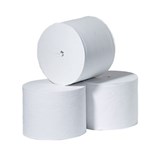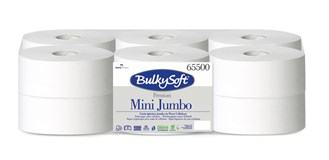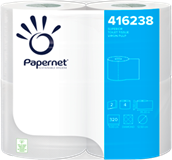Binny Sanitary Bin
Binny is a flat-packed disposable sanitary bin and is the convenient, environmentally responsible and inexpensive way for organisations to dispose of sanitary waste.
Binny provides considerable cost-saving opportunities as well as a host of operational and environmental benefits when compared to sanitary bin contractors.
The dimensions for these are 31 x 7.5 x 35.5cm (LxWxH)
Features and Benefits
- Dispose of all sanitary and personal waste
- Fully compliant with all legislation
- Reduces sanitary bin carbon footprint
- Significant cost savings
- Removes the need for sanitary bin contractors
- Environmentally responsible
- Improves toilet facilities
- Contains inbuilt antibacterial protection
- Unique malodour blocker and fragrance
- Waterproof
- No capital outlay required
DID YOU KNOW THAT MOST ORGANISATIONS DO NOT NEED TO USE SANITARY BIN CONTRACTORS TO COLLECT SANITARY WASTE?
Binny™ disposable sanitary bins remove the need for traditional sanitary bin supplier contracts and are already in use across many organisations including multiple NHS sites. There is a considerable amount of mis-information concerning sanitary waste to ensure organisations utilise traditional sanitary bin suppliers. However, both the HSE and the Department of Health (DOH) clearly define sanitary bin waste as “offensive waste” and this is not hazardous, clinical or medical waste. Furthermore, the Environment Agency re-iterates this and states that low levels of sanitary bin waste (offensive waste) can be “legally discarded in the black bin waste stream” – . This means many organisations, including shops, schools, companies and public sector organisations, do not need to use traditional sanitary bin suppliers to provide, clean and empty their sanitary bins and the organisation’s cleaning staff can easily and legally manage this area using Binny™ disposable sanitary bins. Due to its unique patent pending design, Binny™ sanitary bins and their contents are simply disposed of without the sanitary bin contents ever being seen or handled by visitors or cleaning staff – See bottom of page for brochure and video.
Binny™ disposable sanitary bins comply to relevant legislation/guidance. Binny™ sanitary bins provide antibacterial protection (certified to ISO20743:2013) throughout the life of Binny™. Our Biomaster™ coating has been proven to kill harmful bacteria such such as Campylobacter, E.coli, Legionella, Listeria, Staphylococcus and MRSA, Pseudomonas, Salmonella and many other species by up to 99.99%. Binny™ disposable sanitary bins also provide considerable cost saving opportunities as well as operational and environmental benefits. All Binny™ sanitary bins feature a healthcare message from the Cervical Cancer charity Jo’s Trust on the lid to encourage your staff to have a smear test to reduce their chances of cervical cancer.
Furthermore, the Environment Agency re-iterates this and states that low levels of sanitary bin waste (offensive waste) can be legally discarded in the black bin waste stream. This means many organisations, including shops, schools, companies and public sector organisations, do not need to use traditional sanitary bin suppliers to provide, clean and empty their sanitary bins and the organisations cleaning staff can easily and legally manage this area using Binny disposable sanitary bins.
Due to its unique patent-pending design, Binny sanitary bins and their contents are simply disposed of without the sanitary bin contents ever being seen or handled by visitors or cleaning staff.
Binny Disposable Sanitary Bin Benefits
Binny™ sanitary bins for sanitary and personal waste
With Binny™ disposable sanitary bins you can dispose of all sanitary (feminine waste) and personal waste including tampons, panty liners, baby wipes, cotton swabs, sticking plaster, tissues incontinence pads, nappies and condoms. For 99% of organisations Binny™ is directly placed into the black bin waste
Binny™ sanitary bins comply with legislation
There is a considerable amount of mis-information concerning sanitary bin disposal and waste. Binny™ sanitary bins fulfil the requirements and guidance laid down by the Health and Safety Executive, Environment Agency (EA) and the Department of Health
Binny’s™ sanitary bins’ unique design addresses any concerns around handling sanitary waste;
i) Unlike traditional sanitary bins, the contents of Binny™ sanitary bins are never seen or handled by your cleaning staff
ii) Binny™ sanitary bins have world leading antibacterial properties (certified to ISO20743:2013) along with a specially designed maladour blocker/fragrance (see below).
Binny™ sanitary bins significantly reduce your carbon footprint

External sanitary bin contract companies have a large carbon footprint. Their fleets of vans cover thousands of miles each day servicing sanitary bins. Binny™ disposable sanitary bins are manufactured in the UK and the carbon footprint is very low – one delivery of a 6/12 month supply of flat pack Binny™ sanitary bins replaces multiple trips from a sanitary bin supplier.
The Department of Health has clearly stated that sanitary bin waste (as well as incontinence pads, nappies etc) are not clinical/infectious waste and should be correctly classed as offensive waste. The DOH further states that classifying waste correctly provides “one of the biggest opportunities to reduce wasted energy used in unnecessary treatment of non-infectious wastes and potentially introduces significant cost savings.” Your organisation can help reduce wasted energy and reduce your carbon impact by simply switching to Binny™ sanitary bins.
Binny™ sanitary bins reduce costs
Why pay a contractor for a virtually empty sanitary bin to be emptied? Most commercial sanitary bins are under-utilised (the average weight per collection is only 300g of sanitary waste) but you only replace Binny™ when full and due to Binny’s™ anti-bacterial properties, Binny™ sanitary bins can remain in situ for many months if required. Furthermore, there are also numerous indirect costs with sanitary bin contracts e.g. salesperson visits, contractual negotiations, time spent sorting out additional visits if a bin becomes full etc. Organisations report savings of upto 70% when compared to sanitary bin contracts.
Binny™ sanitary bins remove the need for sanitary bin suppliers and contracts
This classification is very important and means your organisation can dispose of sanitary (feminine) waste easily, legally and simply by using Binny™ sanitary disposal bins and your organisation does not need to use a sanitary bin supplier or sign up to any contracts. As a result, many organisations, including NHS Hospital Trusts, have switched over to using Binny™. Simply re-order more disposable Binnys™ when required – no contracts, no long term commitment, no pressure.
Binny™ sanitary bins are environmentally responsible
Sanitary bins suppliers usually either collect sanitary waste by removing the contents in a plastic bag or the whole bin is removed and replaced. Where a bag is removed, this is contrary to the government’s aim is to reduce the use of plastic bags. Where the whole bin is collected, this is energy intensive as the bins are washed offsite with water and chemicals and are then returned. A high energy intensive process.
- Binny™ sanitary bins are managed by your cleaners and disposed of in your current waste collection so Binny™ eradicates the above.
- Binny™ is made of cardboard
- Binny™ does not use plastic bags and therefore helps reduce the number of plastic bags that end up in landfill
- Binny™ is disposed of along with the contents and therefore saves on water and chemicals as requires no cleaning
Binny™ sanitary bins improve your toilet facilities – sanitary disposal
Sanitary bins are filled at different rates but sanitary bin contractors work around their timescales e.g. a monthly collection. What happens if you have a full bin and a contracted collection is not scheduled for another 2 weeks? Our sanitary disposal bins allows your cleaner to immediately replace a full bin and if Binny™ is not full then it can be left in situ for months. This improves your facilities and makes it easier for your organisation to manage the issue of sanitary bin disposal as well as providing a better environment for your staff, customers and visitors.
Binny™ sanitary bins contain inbuilt antibacterial protection and conforms to ISO 20743:2013
There is an exponentially higher risk of transferring bacteria through touching a traditional sanitary bin, toilet door handle or sink tap than by touching a Binny™ sanitary bin. Traditional sanitary bins do not have any anti-bacterial protection built into the unit. However, Binny™ sanitary bins are safe to touch as they are coated inside and out with Biomaster™ and provide antibacterial protection throughout the life of Binny™ which cannot be washed off. Binny sanitary bins are independently certified to ISO20743:2013 proving their antibacterial effectiveness. The Biomaster™ coating has been proven to kill harmful bacteria such as Campylobacter, E.coli,Legionella, Listeria, Staphylococcus and MRSA,Pseudomonas, Salmonella and many other species by up to 99.99%. For more information on the technology click here.
Binny™ sanitary bins contain a unique malodour blocker and fragrance
Binny™ is the only disposable sanitary bin in the world to contain a unique and specially formulated malodour blocker/fragrance which is designed to specially target sanitary bin odours. Furthermore, as the deodouriser is built into Binny, there is no need to add additional crystals or powders, click here.
Binny™ sanitary bins contain a waterproof coating
Binny™ sanitary bins have an internal waterproof coating, contain 12 litres of storage and are assembled in seconds. Binny™ conceals all contents and your organisation can simply dispose of Binny™ and all its sanitary bin contents.
Binny™ sanitary bins are a consumable
Binny™ sanitary bins do not require a capital purchase and is ordered as an ongoing consumable item.
Binny™ sanitary bins feature a healthcare message
All Binny™ sanitary bins feature a healthcare message from the Cervical Cancer charity Jo’s Trust on the lid to encourage your staff to have a smear test to reduce their chances of cervical cancer.
Sanitary Bin Waste Guidance
From our research most organisations are very confused with regards sanitary waste. So here at Binny Bin disposable sanitary bins, we thought we would help!
Are Sanitary Bins Required?
The Workplace (Health, Safety and Welfare) Regulations 1992 paragraphs 20 and 21 state that washroom facilities should be “suitable and sufficient”. These terms are clarified by the Health and Safety Executive in their “Approved Code of Practice” which states that for toilets used by women, “suitable means should be provided for the disposal of sanitary dressings”. Therefore, a method of disposal for sanitary bins is required. As well as legal obligations to use sanitary bins, there are also environmental reasons. There are an estimated two billion sanitary items which are flushed down toilets each year. This causes environmental damage as well as blocked sewers. There is a large water industry led campaign to address this significant problem.
So the simple answer is yes. Organisations really should use sanitary bins.
Sanitary Bin Collections Companies
Most organisations use sanitary bin companies which supply the sanitary bins and dispose of the waste and therefore, sanitary bin companies have a commercial interest in organisations using their collection services. The fact is that most organisations do not need to use traditional sanitary bin suppliers as sanitary waste is small and light and most organisations can simply use Binny™ disposable sanitary bins and dispose of the waste in the general (black bag) waste. The reason is that you will only be placing low volumes of offensive waste (in this case sanitary bin waste) in the general (black bin) waste.
What are the Rules around Sanitary Waste?
This document will guide you through this area so that you can make an informed decision as to what is best for your organisation. It is your decision as to whether you use a sanitary bin supplier but an increasing number of organisations are now switching to Binny™ disposable sanitary bins and have cancelled their sanitary bin supplier contracts. You simply need to use common sense to assess the alternatives. The simplest answer is found on the www.gov.uk website as here at Binny we requested the issue to be clarified. This was updated on 14th October 2015 and can be found here. This is all you really need. Other relevant guidance document concerning the classification of sanitary waste is HSE Managing Offensive/Hygiene Waste 22 (rev1). The HSE document is primarily aimed at managers and supervisors in municipal and commercial waste collection, material recovery facilities, transfer stations, landfill, incinerators etc (p.2) as these facilities deal with offensive waste on incredibly large scale.
Other guidance for your organisation around classifying and disposing of sanitary waste is found in The Department of Health “Health Technical Memorandum 07-01: Safe Management of Healthcare Waste 2013″.
What is the Classification of Sanitary Bin Waste?
There is a considerable amount of mis-information and confusion concerning sanitary bin waste. Some organisations are informed that sanitary waste is medical/clinical/hazardous. However, it is actually considered to be Offensive Waste and the HSE document confirms this:
Sanitary Bin Offensive Hygiene waste definition
You can safely assume that sanitary waste is non-infections unless you are informed otherwise e.g. by a doctor as stated in the HSE guidance (p.3.),
“Municipal waste from domestic self-care – of a type that does not involve the need for a healthcare practitioner – is assumed to be non-infectious unless a healthcare practitioner indicates otherwise. This includes nappies and sanitary products.”
There are many different types of waste listed by the HSE which are deemed to be offensive waste, including:
Human and animal waste (faeces)
Incontinence pads
Catheter and stoma bags
Nappies
SANITARY WASTE
Nasal secretions
Sputum
Condoms
Urine
Vomit and soiled human bedding from a non-infectious source
Medical/veterinary items of disposable equipment such as gowns etc
Plasters (minor first aid or self-care) generated by personal use
Animal hygiene waste (e.g. animal bedding)
Waste from non-healthcare activities, e.g. waste from body piercing, tattoos”
Therefore, as we now know that sanitary waste is offensive waste, the next question is what are the rules for disposal? If you are not involved in healthcare (i.e. you are an office, shop etc) then please now read Binny sanitary bins – Use/Disposal
Healthcare
For healthcare organisations, the document to refer to regarding sanitary waste is also The Department of Health “Health Technical Memorandum 07-01: Safe Management of Healthcare Waste 2013″. This document also details that sanitary waste is not clinical / hazardous waste but is non-clinical non-hazardous waste and is offensive waste .



![binny sanitary bin [5] 1052 p](/media/1643/binny-sanitary-bin-5-1052-p.jpg?anchor=center&mode=crop&width=200&height=200&rnd=132157117100000000)

![binny sanitary bin [3] 1052 p](/media/1641/binny-sanitary-bin-3-1052-p.jpg?anchor=center&mode=crop&width=200&height=200&rnd=132157115260000000)
![binny sanitary bin [4] 1052 p](/media/1642/binny-sanitary-bin-4-1052-p.jpg?anchor=center&mode=crop&width=200&height=200&rnd=132157115310000000)
![binny sanitary bin [2] 1052 p](/media/1640/binny-sanitary-bin-2-1052-p.jpg?anchor=center&mode=crop&width=200&height=200&rnd=132157113030000000)











